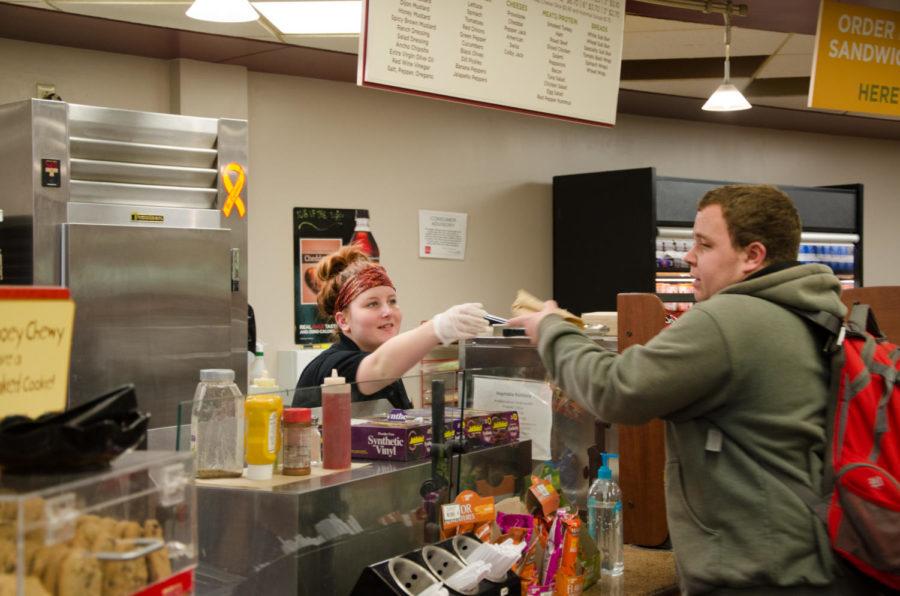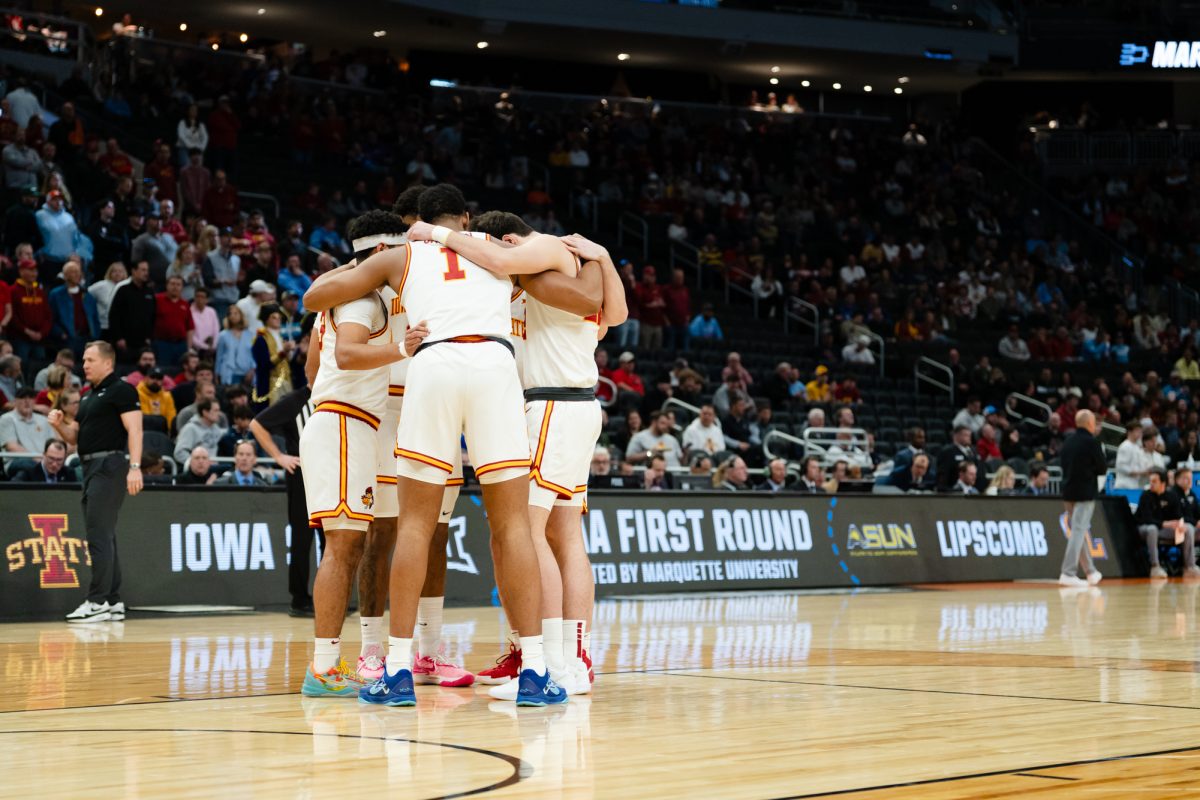Work study provides advantages for students
Meryl Onnen, a junior in public relations, serves food at West Side Market while at work Jan. 27, 2015.
January 28, 2015
Did you know you may have the criteria to increase your opportunities for scholarships by working?
Through the work study program, partially funded by federal and institutional funds, students may gain qualifications for various need-based financial aid.
It is the duty of ISU Director of Financial Aid Roberta Johnson to “coordinate all sorts of funds for students to help pay their way through college.” Work study is one of the means to which students can do that.
Students are eligible for the program if their estimated family and personal contributions are less than the estimated cost of going to college, as indicated on the FAFSA. Johnson urges students to file their FAFSA between now and March 1. This way, they have a chance to qualify for work study.
On the FAFSA, students must indicate interest in joining the work study program. If eligible, they must take responsibility for finding employment.
“We, [the financial aid office], try to facilitate that by having the student job board on AccessPlus, so students can find positions,” Johnson said.
Jobs on the student job board may or may not be directly related to the student’s major. However, Johnson did cite that studies have found that students who work while in college are, on average, more successful academically.
Students who participate in work study also benefit by having the money they earn through their job not count toward their estimated contribution.
Essentially, the money made through work study acts like a scholarship. Students receive money that FAFSA does not take into account when determining financial need and estimated contribution.
Finding an employer who offers work study is simple. Most of them are conveniently located around campus in places like ISU Dining and Parks Library.
Carolina Covington, senior in global resource systems and environmental studies, works as a student supervisor at Bookends Café. She speaks positively about working on campus.
“It really does help [with time management] because if I had all that time, I’d know I would procrastinate, but I know now when I have time and I’m not working or at school, I have to do my work,“ Covington said.
Covington does not participate in work study. She commented that there is no noticeable difference between work study employees and non-work study employees.
Adam Matthews, junior in computer engineering and Spanish, has participated in work study. He echoes Covington’s sentiment.
“It wasn’t really ever something that was in my head,” Matthews said.
Participating in work study will give students the same work experience as non-work study students, just with more financial benefits.
Matthews and Covington agree that the atmosphere of their on-campus jobs is preferable to having a job away from campus because of the convenience. Both said simply being able to change shirts and walk to work is great.
Most on-campus employers hire work study eligible students. Some places even prefer to hire them.
“Departments like to have work study students because the wages that are paid are subsidized,” Johnson said.
This means that the department does not have to pay 100 percent of its employees’ wages, rather a certain percentage of each wage gets paid by federal funds.
The wages paid to non-work study students are funded entirely by the employer. Work study eligible students are likely to get an on-campus job because they help their employers save money.
In order to partake in the work study program, students must first file a FAFSA form between now and March 1, indicate interest in the program, and be deemed eligible. You can check your eligibility by logging in to AccessPlus and clicking the “Financial Aid Award” tab. Check with the financial aid office or on Iowa State’s website for more information.
Students should be sure to check eligibility status and the jobs offered on campus to ensure a flexible, fun and fulfilling money-making experience while going to school.







